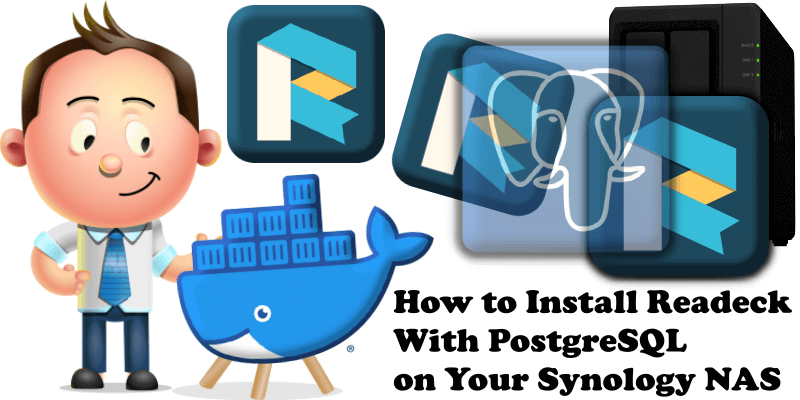
Readeck is a simple web application that lets you save the precious readable content of web pages you like and want to keep forever. See it as a bookmark manager and a read later tool. PostgreSQL has a well-constructed user management system which can handle multiple users and grant various levels of permission. SQLite is suitable for smaller databases. As the Readeck database grows, the memory requirement also gets larger while using SQLite. Performance optimization is harder when using SQLite so PostgreSQL is the solution. In this step by step guide I will show you how to install Readeck with PostgreSQL as database on your Synology NAS using Docker & Portainer.
This guide works perfectly with the latest Readeck v0.19.2 release.
STEP 1
Please Support My work by Making a Donation.
STEP 2
Install Portainer using my step by step guide. If you already have Portainer installed on your Synology NAS, skip this STEP. Attention: Make sure you have installed the latest Portainer version.
STEP 3
Go to File Station and open the docker folder. Inside the docker folder, create one new folder and name it readeck. Follow the instructions in the image below.
Note: Be careful to enter only lowercase, not uppercase letters.
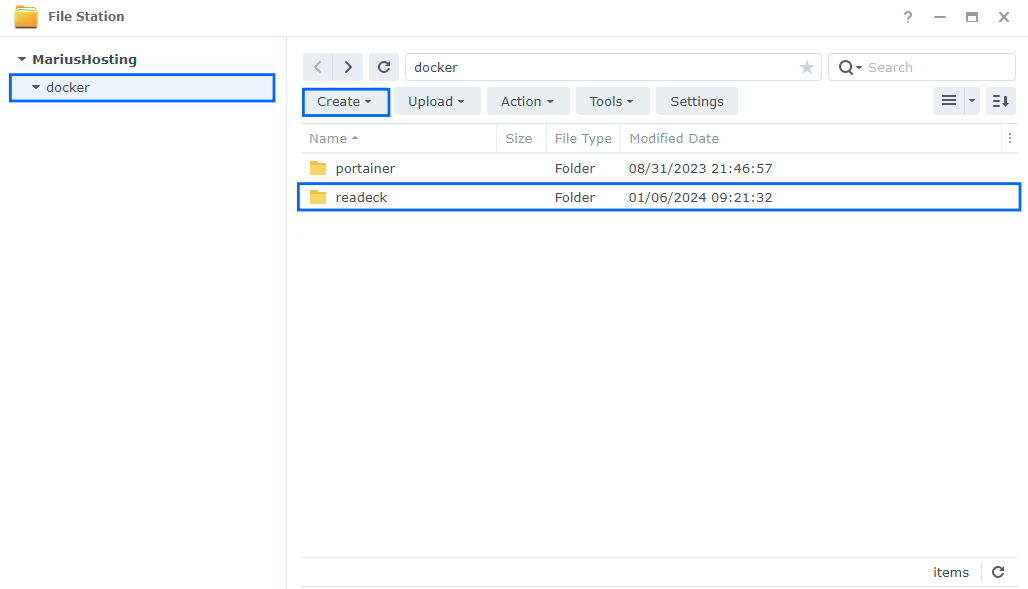
STEP 4
Now create two new folders inside the readeck folder that you created at STEP 3 and name them data and db. Follow the instructions in the image below.
Note: Be careful to enter only lowercase, not uppercase letters.
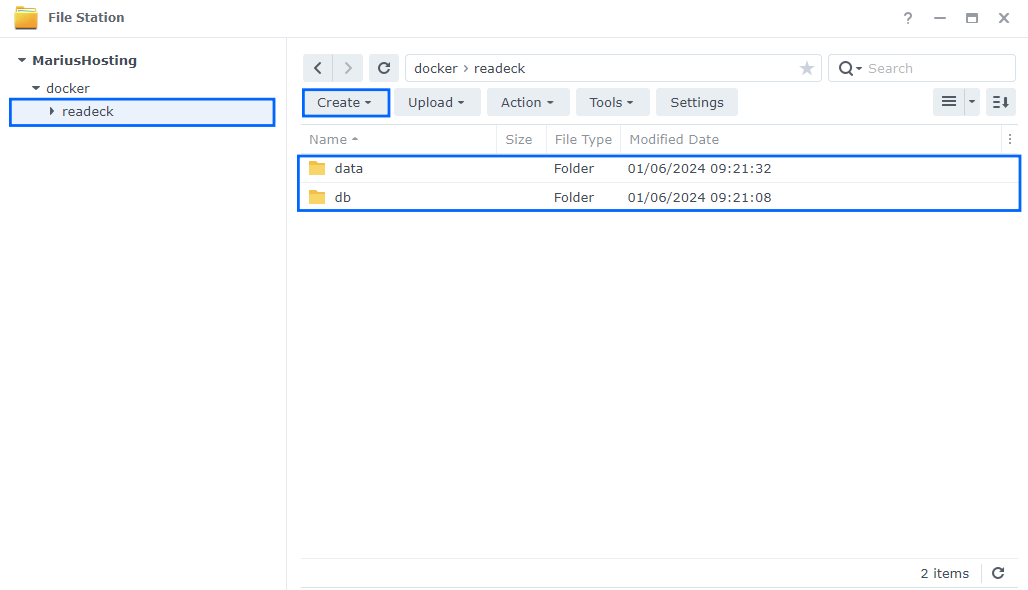
STEP 5
Log into Portainer using your username and password. On the left sidebar in Portainer, click on Stacks then + Add stack. Follow the instructions in the image below.
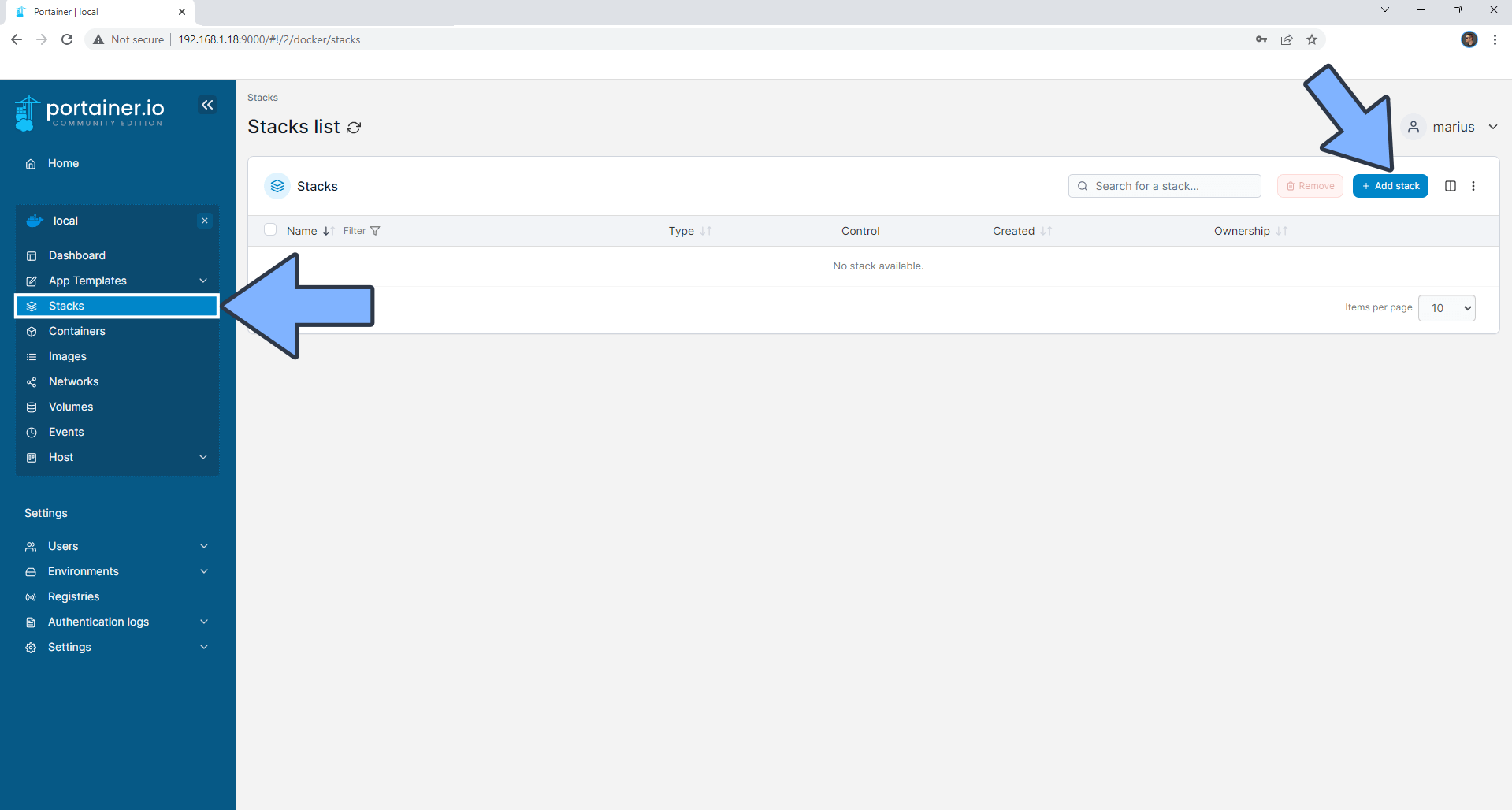
STEP 6
In the Name field type in readeck. Follow the instructions in the image below.
services:
readeck:
container_name: Readeck
image: codeberg.org/readeck/readeck:latest
mem_limit: 8g
cpu_shares: 1024
security_opt:
- no-new-privileges:true
restart: on-failure:5
ports:
- 4522:8000
volumes:
- /volume1/docker/readeck/data:/readeck:rw
environment:
READECK_USE_X_FORWARDED: true
READECK_DATABASE_SOURCE: postgres://readeck:readeckpass@readeck-db:5432/readeck
readeck-db:
image: postgres:16
container_name: Readeck-DB
hostname: readeck-db
mem_limit: 1g
cpu_shares: 768
security_opt:
- no-new-privileges:true
healthcheck:
test: ["CMD", "pg_isready", "-q", "-d", "readeck", "-U", "readeck"]
timeout: 45s
interval: 10s
retries: 10
volumes:
- /volume1/docker/readeck/db:/var/lib/postgresql/data:rw
environment:
POSTGRES_DB: readeck
POSTGRES_USER: readeck
POSTGRES_PASSWORD: readeckpass
restart: on-failure:5
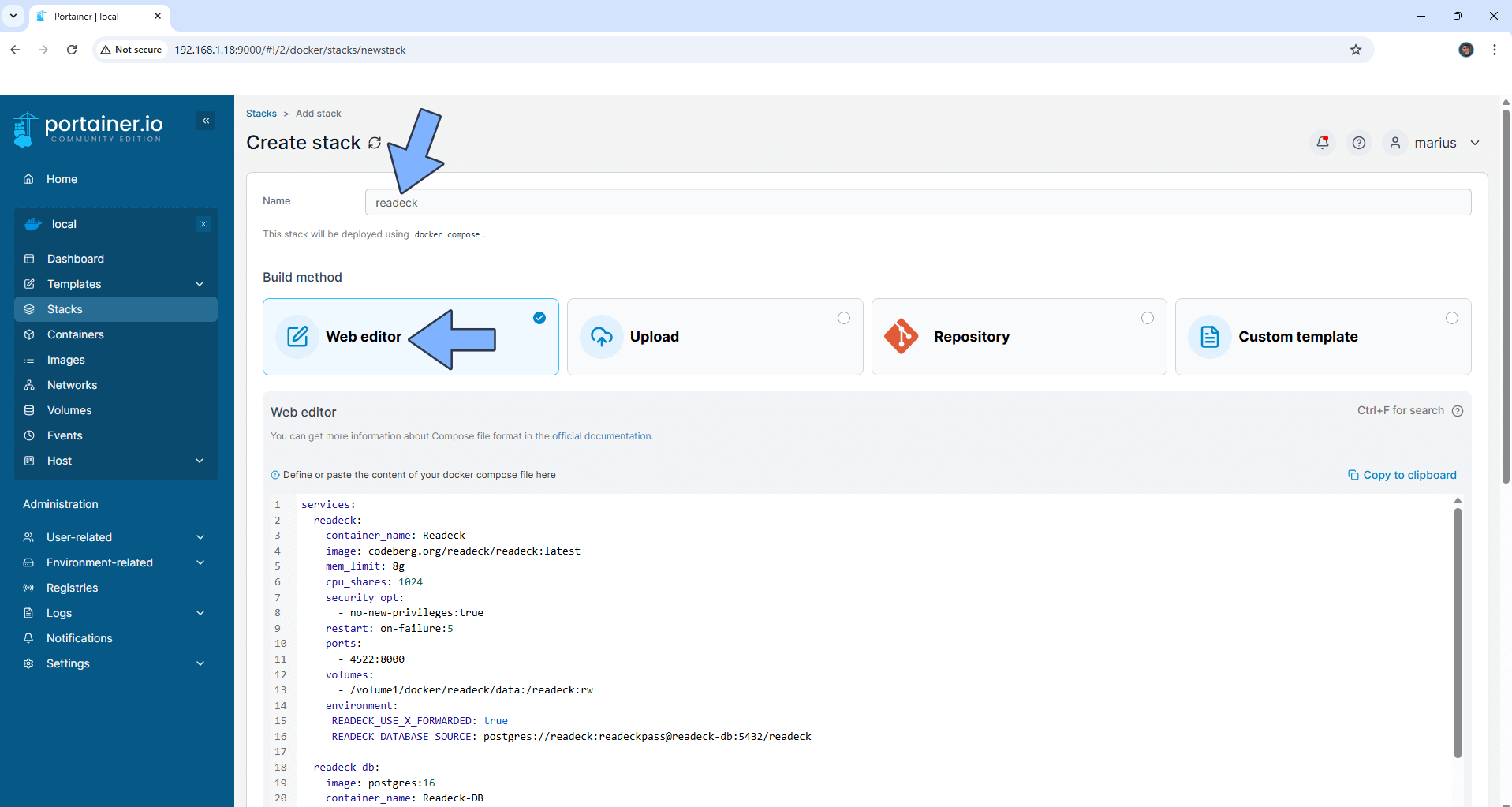
STEP 7
Scroll down on the page until you see a button named Deploy the stack. Click on it. Follow the instructions in the image below. The installation process can take up to a few minutes. It will depend on your Internet speed connection.
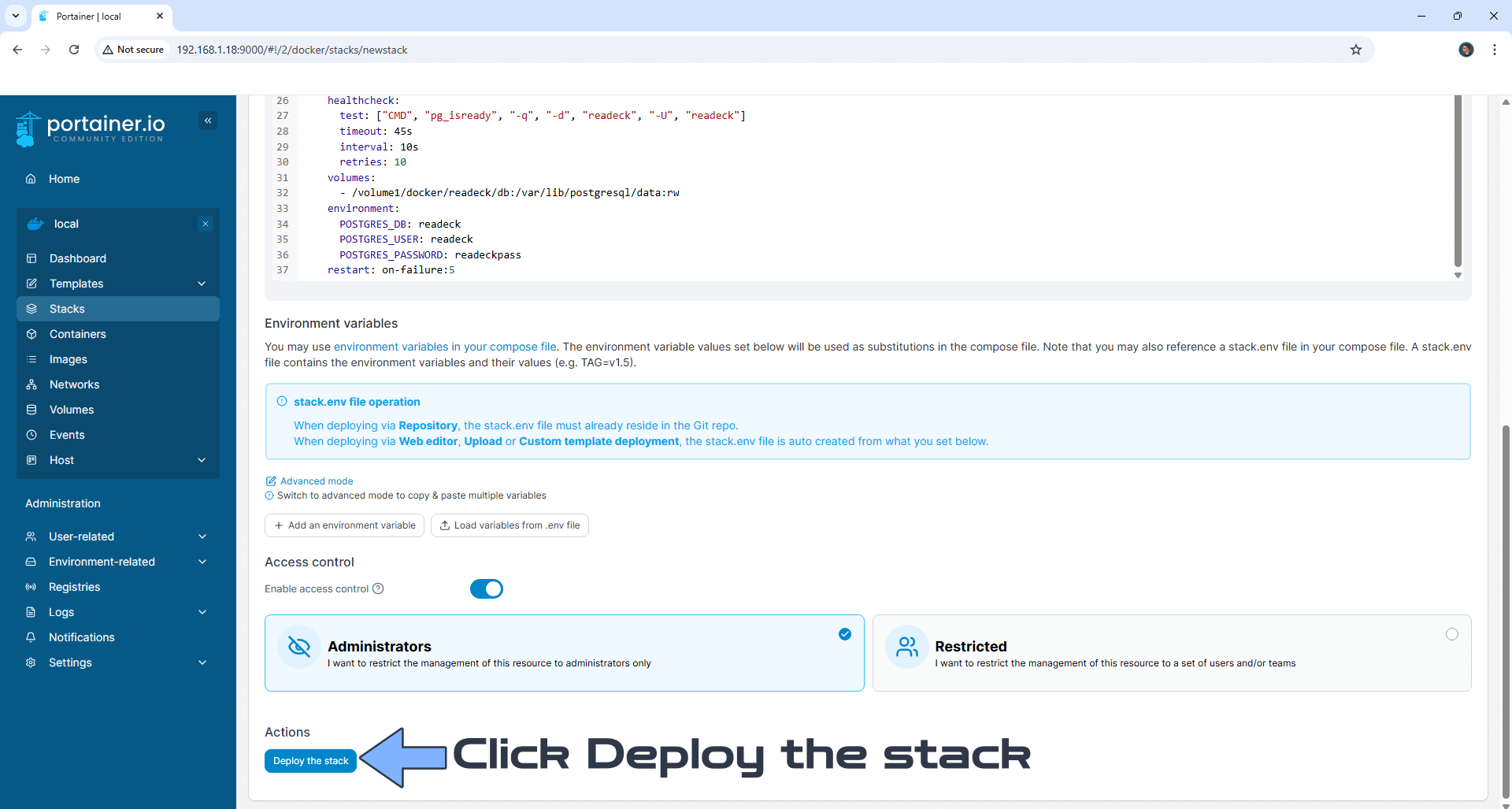
STEP 8
If everything goes right, you will see the following message at the top right of your screen: “Success Stack successfully deployed“.
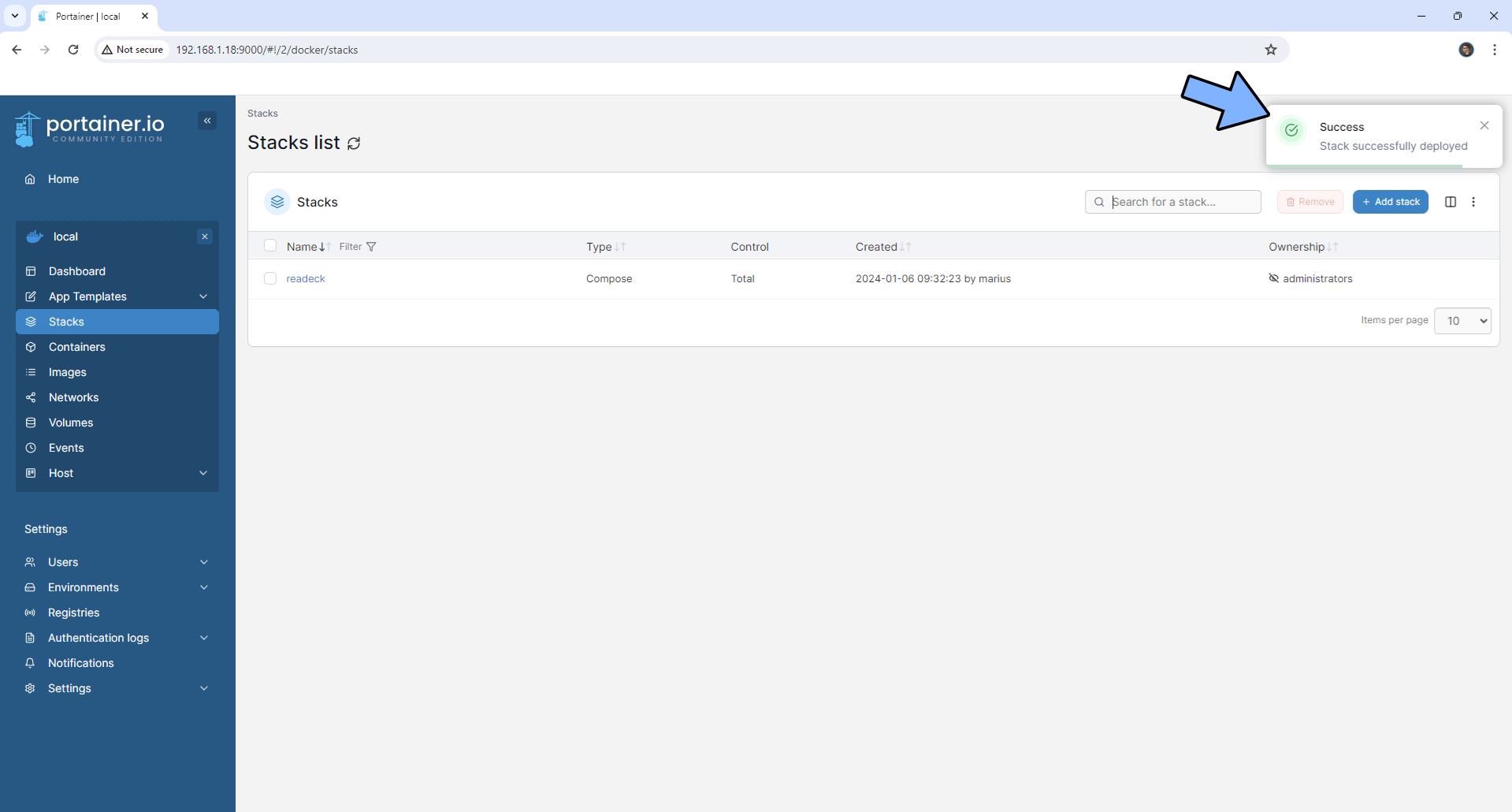
STEP 9
🟢Please Support My work by Making a Donation. Almost 99,9% of the people that install something using my guides forget to support my work, or just ignore STEP 1. I’ve been very honest about this aspect of my work since the beginning: I don’t run any ADS, I don’t require subscriptions, paid or otherwise, I don’t collect IPs, emails, and I don’t have any referral links from Amazon or other merchants. I also don’t have any POP-UPs or COOKIES. I have repeatedly been told over the years how much I have contributed to the community. It’s something I love doing and have been honest about my passion since the beginning. But I also Need The Community to Support me Back to be able to continue doing this work.
STEP 10
The installation process can take up to a few seconds/minutes. It will depend on your Internet speed connection. Now open your browser and type in http://Synology-ip-address:4522 Type in your details (Username, Password, Email Address), then click Finish Installation. Follow the instructions in the image below.
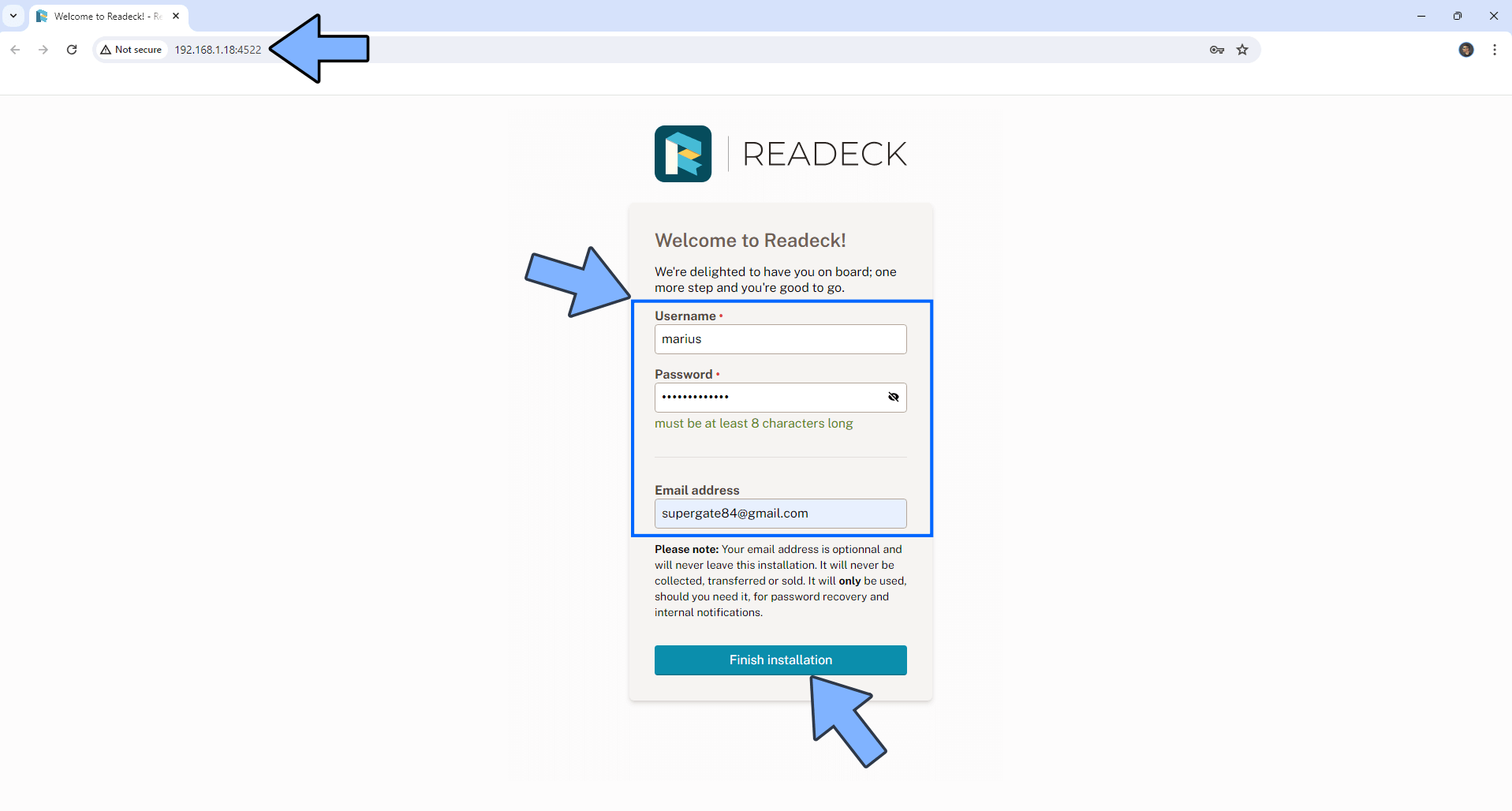
STEP 11
In the URL area type in your favorite website Link, then click Save link. Follow the instructions in the image below.
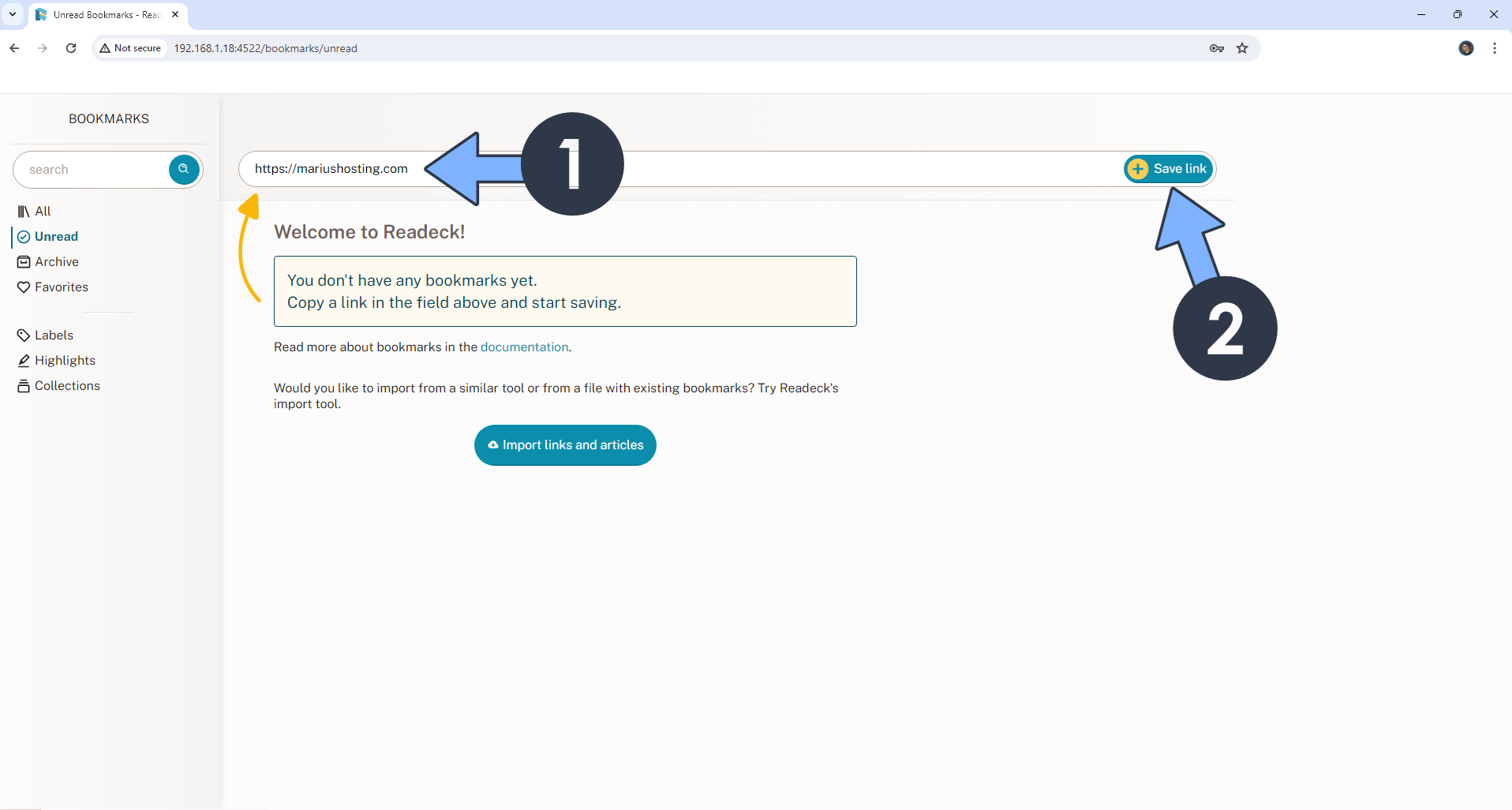
STEP 12
Wait some seconds before your website is added in the Bookmarks area, then click on it when it’s ready. Follow the instructions in the image below.
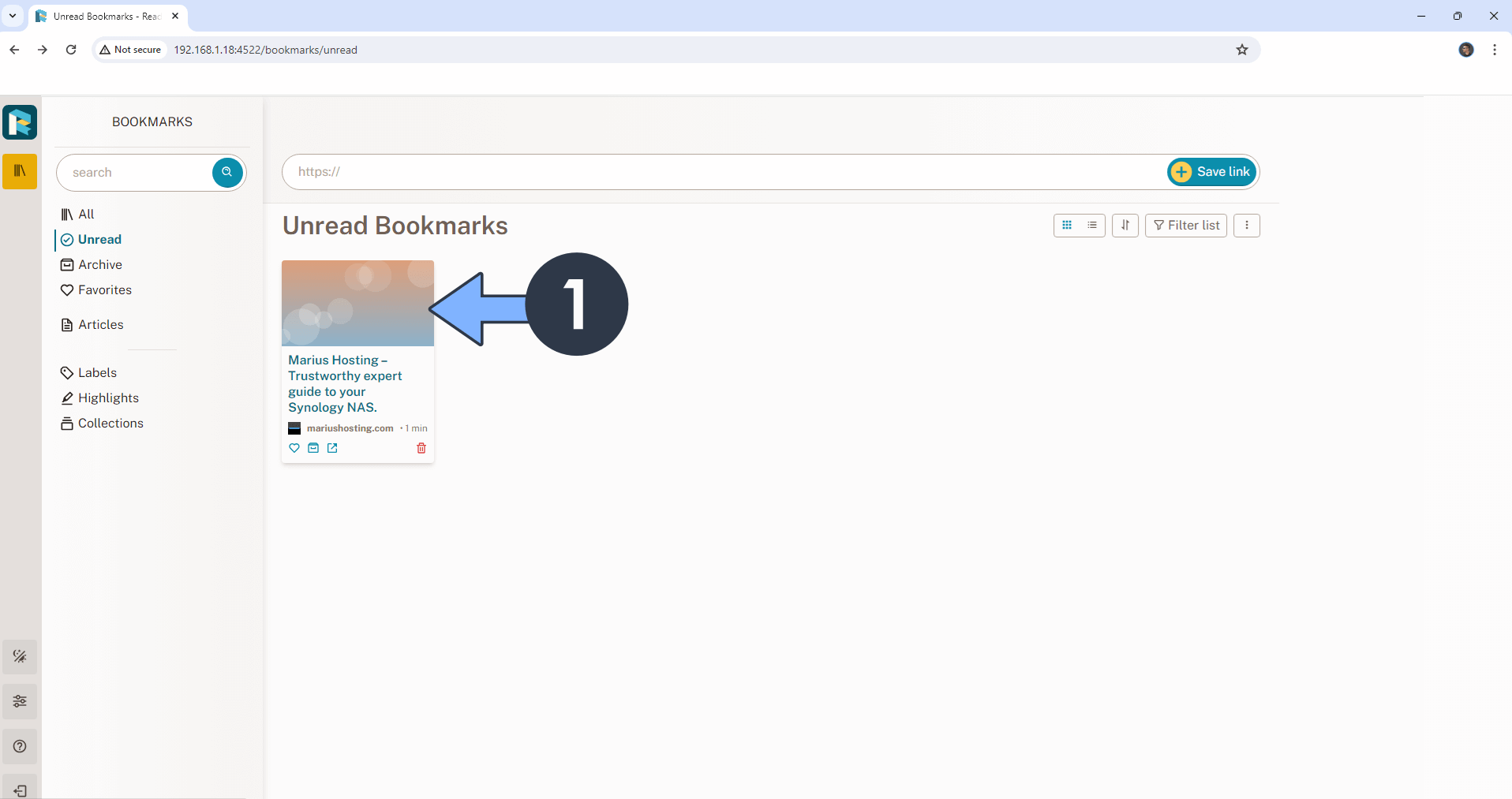
STEP 13
Your Readeck Bookmark at a glance!
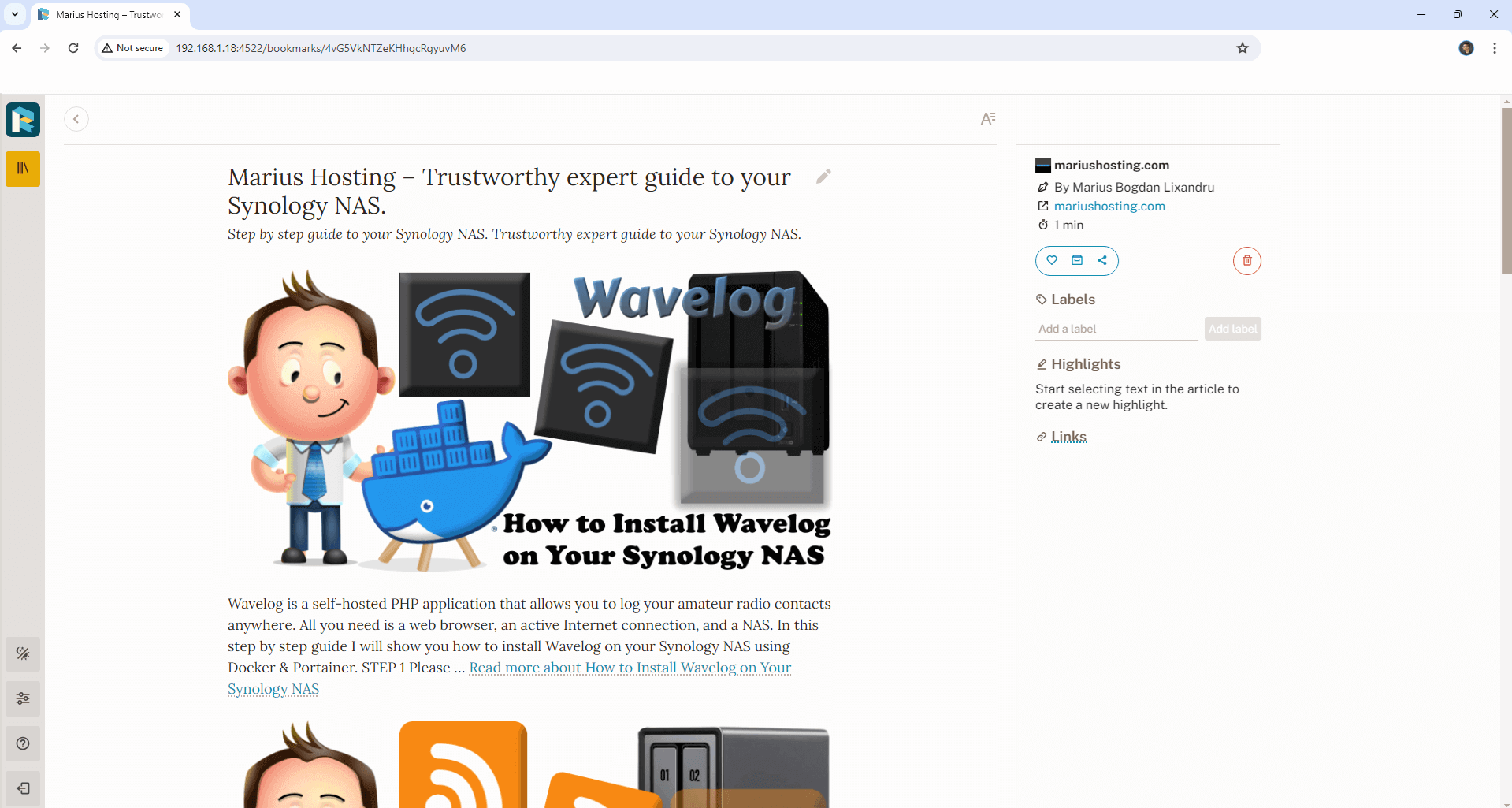
STEP 14
On the left sidebar you can easily switch the theme to Dark. Follow the instructions in the image below.
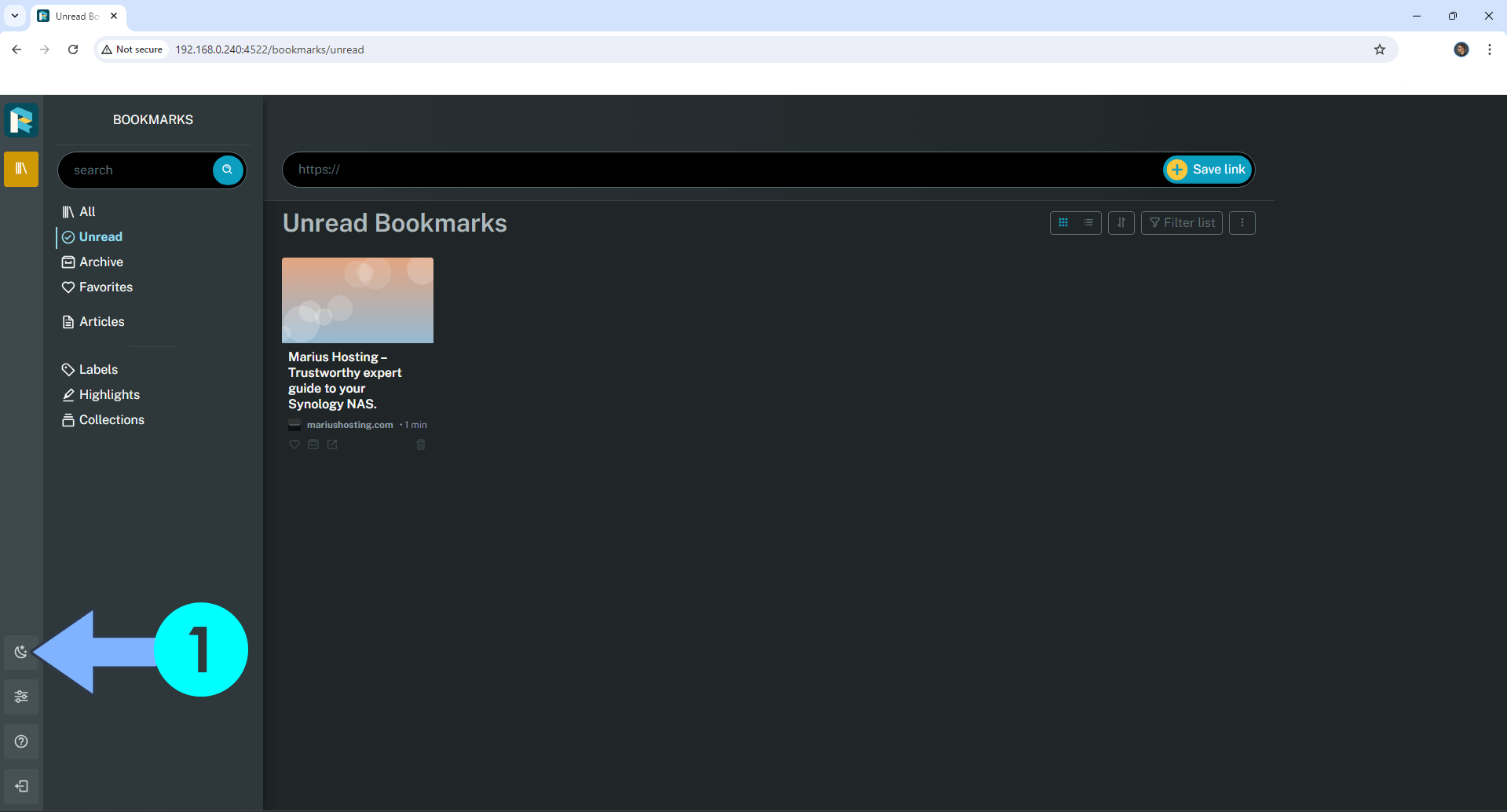
Enjoy Readeck!
If you encounter issues by using this container, make sure to check out the Common Docker issues article.
Note: If you want to run the Readeck container over HTTPS, check How to Run Docker Containers Over HTTPS. In order to make Readeck work via HTTPS, it’s mandatory to activate WebSocket.
Note: Can I run Docker on my Synology NAS? See the supported models.
Note: Find out how to update the Readeck container with the latest image.
Note: How to Free Disk Space on Your NAS if You Run Docker.
Note: How to Schedule Start & Stop For Docker Containers.
Note: How to Activate Email Notifications.
Note: How to Add Access Control Profile on Your NAS.
Note: How to Change Docker Containers Restart Policy.
Note: How to Use Docker Containers With VPN.
Note: Convert Docker Run Into Docker Compose.
Note: How to Clean Docker.
Note: How to Clean Docker Automatically.
Note: Best Practices When Using Docker and DDNS.
Note: Some Docker Containers Need WebSocket.
Note: Find out the Best NAS Models For Docker.
Note: Activate Gmail SMTP For Docker Containers.
This post was updated on Tuesday / June 10th, 2025 at 12:33 PM
